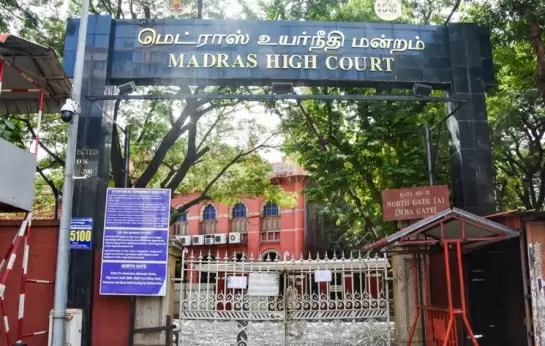SC quashes 'unconstitutional' tax tribunal act
25-September-2014
The Supreme Court Thursday struck down the National Tax Tribunal Act, holding it unconstitutional, violating the constitution's basic structure and constitutional conventions as the panel was not bestowed with the characteristics, powers and standards of the high court it sought to substitute.
A constitution bench of Chief Justice R.M. Lodha, Justice Jagdish Singh Khehar, Justice J. Chelameswar and Justice A.K.Sikri, in their majority judgment, said that parliament could not take away the powers of the judiciary and vest them in a tribunal which does not have the characteristic of the court it is seeking to replace.
Justice Rohinton Fali Nariman, in a separate but concurring judgment, describing the tribunal as unconstitutional and in breach of separation of powers between different organs of the state, said that the substantial question of law can only be decided by the higher judiciary - the Supreme Court and the high courts.
"I would, therefore, hold that the National Tax Tribunals Act is unconstitutional, being the ultimate encroachment on the exclusive domain of the superior courts of record in India," he held.
Speaking for the majority, Justice Khehar said that the constitution's basic structure would stand violated if parliament, while creating such a tribunal, did not confer on it the "salient characteristics and standards", of the high court it was seeking to replace for adjudicating tax matters.
"The basic structure of the constitution will stand violated, if while enacting legislation pertaining to transfer of judicial power, parliament does not ensure that the newly-created court/tribunal, conforms with the salient characteristics and standards, of the court sought to be substituted," he said.
Besides "constitutional conventions, pertaining to constitutions styled on the Westminster model, will also stand breached, if while enacting legislation, pertaining to transfer of judicial power, conventions and salient characteristics of the court sought to be replaced, are not incorporated in the court/tribunal sought to be created", the court said.
Examined on these touchstones, "sections 5, 6, 7, 8 and 13 of the NTT Act", are held to be unconstitutional, the court said.
"Since the aforesaid provisions, constitute the edifice of the NTT Act, and without these provisions, the remaining provisions are rendered ineffective and inconsequential, the entire enactment is declared unconstitutional," said the majority verdict.
These sections form the part of chapter II of the act spelling out the tribunal's establishment.
The majority judgment however made it clear that there was nothing that prevented parliament from enacting a law that would vest the adjudicatory function of high court with an alternative court/tribunal, but exercise of such legislative power should not be violate the basic structure of the constitution and conventions that provide for an independent judiciary.
"The parliament has the power to enact legislation, and to vest adjudicatory functions, earlier vested in the high court, with an alternative court/tribunal. Exercise of such power by the parliament would not per se violate the basic structure of the constitution," the court said.
"Recognized constitutional conventions pertaining to the Westminster model, (too) do not debar the legislating authority from enacting legislation to vest adjudicatory functions, earlier vested in a superior court, with an alternative court/tribunal. Exercise of such power by the parliament would per se not violate any constitutional convention."
The court was ruling on a batch of petitions challenging the act's constitutional validity and simultaneously the constitutional validity of the Constitution (Forty-second Amendment) Act, 1976, on grounds that the act violated the constitution's basic structure by impinging on the power of judicial review - vested in the high court. - IANS
Venezuelan President, Wife Captured After Strikes On Caracas, Claims Trump
Bengaluru to Get Third-Largest Park After Lalbagh, Cubbon; Basavanna Biodiversity Park Approved
Nation Remembers Tamil Queen Veeramangai Rani Velu Nachiyar Who Fought The British
Treat Gig Workers As Human Beings, Not Disposable Data Points: Raghav Chadha
Missing BJP Leader Found Dead in Pond After Five Days in East Midnapore









